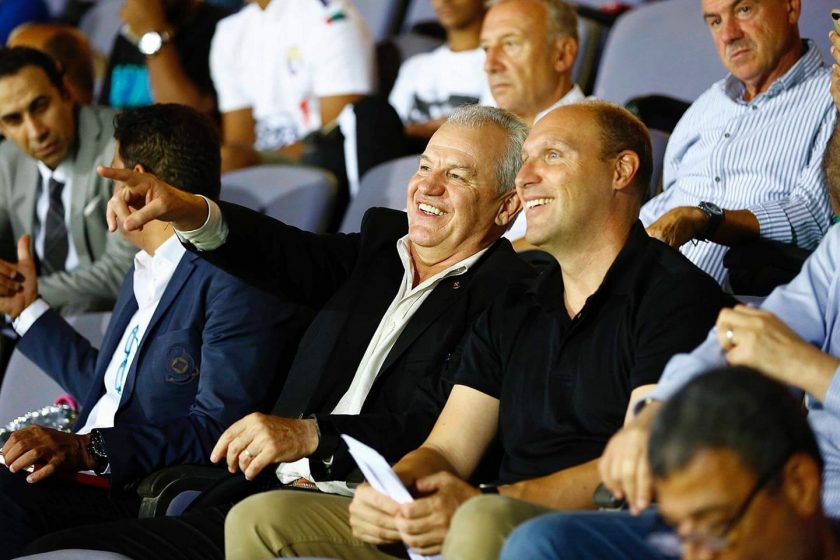
After an exceptional win against Niger, Egypt’s national football team is now aggressively in pursuit of scoring, transformed into an offensive unit that shows promise and the will to win, something that was not seen in their World Cup performance.
After the World Cup, the Egyptian Football Association (EFA) replaced Hector Cuper with former Atlético Madrid’s Manager, Javier Aguirre. Aguirre is to lead Egypt into the 2022 World Cup qualifying campaign and the Africa Cup of Nations (AFCON) qualifiers.
The second match for Egypt in the AFCON qualifiers was on September 8. Aguirre stunned all Egyptians with a new and refreshing playing style, leading Egypt to a great 6-0 victory against Niger. Aguirre was definitely off to a good start with the Egyptian team, and here’s why: he played with an offensive tactic instead of Cuper’s all too preferred defensive tactic.
Some pointed out that Egypt started the match with a 3-4-3 tactic, shifting later to 4-3-3 instead of Cuper’s 4-2-3-1, which is known to be a defensive tactic. This change in strategy meant that Egypt would play more on the offensive, unlike Cuper’s strategy which was defense-oriented and meant that players did not have much freedom to attack, hence were given less chances doing so, giving audiences, scouts, and other teams a chance to witness our offensive capabilities. This means Egypt would be left with a confident, maybe even daring team, that would not be afraid to attack, no matter who they play against.
“Playing with this tactic, Aguirre left both backs able to move forward and attack, unlike Cuper who restrained both backs from moving forward,” Karim Fahmy, former analyst at Korastats and scout specialist, told The Caravan.
The freedom to play on the offensive was evident throughout the match, as we saw left back Ayman Ashraf soaring to score Egypt’s second goal.
It was also noted that the new tactic affected Mohamed Salah’s performance throughout the match; he was no longer a lone wolf. He was supported by Mohamed El Neny, Marwan Mohsen and Mahmoud Trezeguet. The chemistry found between the players could prove to be a dangerous offensive line to opposing teams.
However, with Aguirre’s tactic, he hoped to give the players this opportunity.
“Niger is in no way considered a strong team, however, this match was an indicator of the path Aguirre intends to take,” added Fahmy.
That was proven through the match’s statistics, with “Egypt’s overall possession being 62%, while Niger’s was 38%,” according to Korastats.
This was not the only evident change that Aguirre made with the team, but his squad selection raised many
eyebrows. Ahmed Fathi, Kahraba and Abdallah El Said were names that were not listed in the match line-up or on the team’s squad. Instead, there were names of young players that were never seen on the sidelines let alone the first team, like Salah Mohsen, Ali Ghazal and Baher el Muhammadi.
Fahmy thinks that Aguirre decided to include many young players because he is looking to build a team for the future.By 2022, most players that were initially on the team would be in their early thirties, whereas these young players would just be in their mid-twenties, allowing more players with better stamina and fitness and a lot of time to enhance and improve their skills.
It is still early to judge Aguirre, given that this was his first match and it was a considerably easy match against Niger, with Niger ranked at 103 as Egypt takes up the rank of 65 on the world.